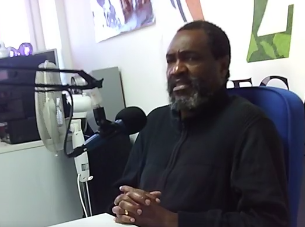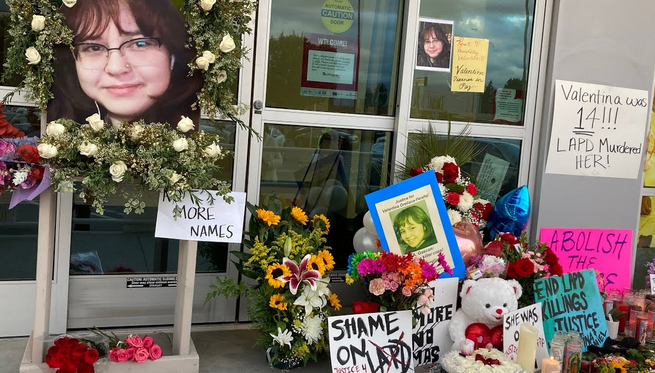[Kwaku\BritishBlackMusic.com\Black Music Congress]
Kwaku: “The point of this article is to raise the issue of how imprecise language is bound to potentially disadvantage the people that these current Black programs and funding are supposedly aimed at.”
Photo: Facebook
The following article was released by Kwaku BBM, the founder of BritishBlackMusic.com/Black Music Congress.
It’s no understatement to say that the world changed on May 25, 2020 – the day the world saw on a mobile or TV screen the slow death of George Floyd in Minneapolis, Minnesota. Floyd was an African man, and what played out in plain sight was the ultimate form of Afriphobia – racism or discrimination against an African person.
Following Floyd’s death, African communities in and outside the US demonstrated their anger and disapproval of this wanton killing of an African by a police officer.
And like never before, non-Africans, particularly European youths and corporate America, demonstrated their solidarity and allyship with a tragic African experience. The former marched, demonstrated, and some carried Black Lives Matter placards. The latter, particularly music companies that supported the #BlackOutTuesday and #TheShowMustBePaused initiatives, talked about career progression programs for African American executives, and funding for anti-racist and Black community projects.
The same sort of thing is being replicated in Britain.
However, the point of this article is to raise the issue of how imprecise language is bound to potentially disadvantage the people that these current Black programs and funding are supposedly aimed at.
In the US, when they talk about Black, it unequivocally refers to African people. However, in the UK, it isn’t necessarily so. From my experience, apart from the reference to so-called ‘Black on Black crime’, where it unambiguously refers to African people, Black in other circumstances, particularly were funding is involved, can sometimes mean the political Black. That’s akin to BAME, (Black, Asian, and Minority Ethnic) which we eschew, preferring to use AAME (African, Asian, Minority Ethnic).
By the way, our use of African refers to all peoples of African heritage, irrespective of whether they come from the African continent, the Caribbean, or born in the UK.
Here in the UK, we’ve seen in the last few weeks music organizations make pledges to their Black communities. We can understand BAME, but when Black is used in isolation, it’s very difficult to understand who it specifically refers to. That’s why in the soon to be published ‘RE:IMI Black Out Tuesday UK Music Industry Race Diversity Report’, we were upfront in trying to talk in terms of Africans and AAME.
There is a presumption that Black refers to African people. This not always correct. However, in the case of the newly formed Black Music Coalition, which aims to work for the betterment of UK Black executives, we asked and have been reassured it refers to people of African and African-Caribbean heritage.
Take the BBC’s Creative Diversity Commitment, for example. It talks of its response to the George Floyd murder, then mentions Black people in one breath and BAME communities in another, and trumpets a £100m commitment over the next 3 years for diverse programming. There’s no guarantee what percentage will benefit people of African heritage.
There’s the matter of African pain, someone else’s gain. And this needs to be expressed overtly, in non-sugar-quoted language! There should be no apology batting for the African cause, if those who express solidarity and allyship with the African experience, recognize that the African is usually at the wrong end of the social indices, from employment, prison sentences, to deaths in custody. It ain’t going to change, if African-focused remedial programs aren’t put into place.
We believe any George Floyd/#TheShowMustBePaused inspired initiatives should be focused on redressing the endemic disadvantage experienced by African employees, consumers and communities, and addition to dismantling systemic and structural racism with the organizations and wider society.
One of the funding streams open to Black creatives is the PRS Foundation’s Sustaining Creativity Fund, which closes on Monday, Aug. 10. We are not sure the Black refers to just African creators.
Just as organizations have recently had a reawakening as to their race/ethnicity-facing diversity responsibilities – and there’s been some frank talk on the matter in the RE:IMI Report – we believe we need better clarity as to the language used in diversity and anti-racism programs and discourse.
For example, although RE:IMI supports the #NoSilenceInMusic letter, it has nevertheless pointed out to the organisers that they were remiss in not including Afriphobia, when mentioning other forms of racism, such as anti-Semitism and Islamophobia.
Indeed, we’d hope in the interest of getting a clearer handle on appropriate language, especially anti-racist activists and EDI (Equality, Diversity & Inclusion) professionals, would join the African History Reflection Day 2020: Interrogating Language Of Identity Aug. 31 Zoom meeting, which is focused on identity politics and language.












